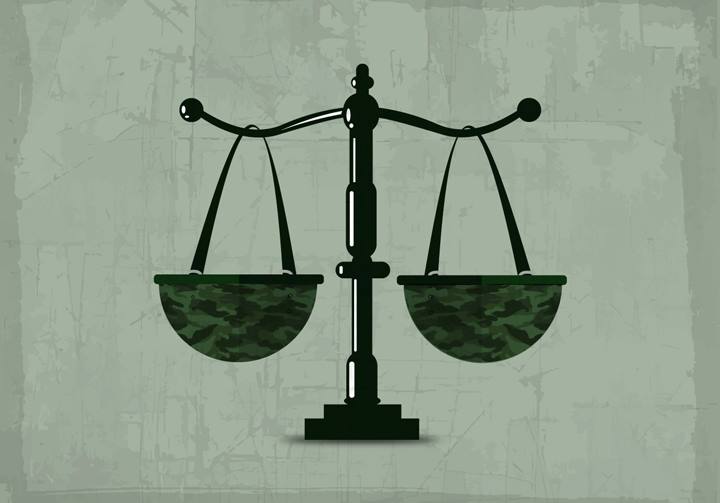
During the hearing of the 18th and 21st Constitutional Amendment case, Justice Asif Saeed Khosa asked the Attorney General for Pakistan (AGP) Salman Butt if he could provide the case record of six convicts for examination of the entire process of trial by the military court.
Responding to the Justice Khosa’s request, AGP Butt said the procedure regarding the functioning of military courts was already submitted in the apex court. However, Justice Qazi Faez Isah observed they could not find that record.
Earlier, Justice Khosa remarked that though the army chief endorsed the conviction, the appeals of the convicts were still pending.
He questioned that if the superior officer endorsed the conviction then how his juniors could go against his verdict, and asked if anyone was involved in terror activities who were supposed to punish him, executive or judiciary?
Read: Terrorism cases: Unfair to blame judges over delay in prosecution, says SC
Justice Khosa said the blame was wrongly placed on judiciary with regard to the establishment of military courts, adding that parallel judiciary was formed due to the December 16 Peshawar attack.
Meanwhile, Justice Ejaz Afzal Khan said the parliament was given unfettered power to legislate on any issue under Article 239 of the Constitution while on the other side, could be made against the violation of fundamental rights in view of Article 8 of the Constitution.
The Chief Justice Nasirul Mulk also questioned if the 21st Amendment had successfully given protection to military courts.
Read: SC stays execution of six terror convicts sentenced by military courts
Earlier on April 16, the Supreme Court had stayed execution of six militants on terror charges awarded by military courts.
The Supreme Court Bar Association (SCBA) had requested the top court to pass an interim order staying execution of the condemned prisoners.

1721377568-0/BeFunky-collage-(18)1721377568-0-165x106.webp)



1725254039-0/Untitled-design-(24)1725254039-0-270x192.webp)

1732617223-0/Untitled-design-(69)1732617223-0-270x192.webp)

1732603037-0/BeFunk_§_]__-(51)1732603037-0.jpg)
1732610150-0/Untitled-design-(3)1732610150-0-270x192.webp)






COMMENTS (4)
Comments are moderated and generally will be posted if they are on-topic and not abusive.
For more information, please see our Comments FAQ